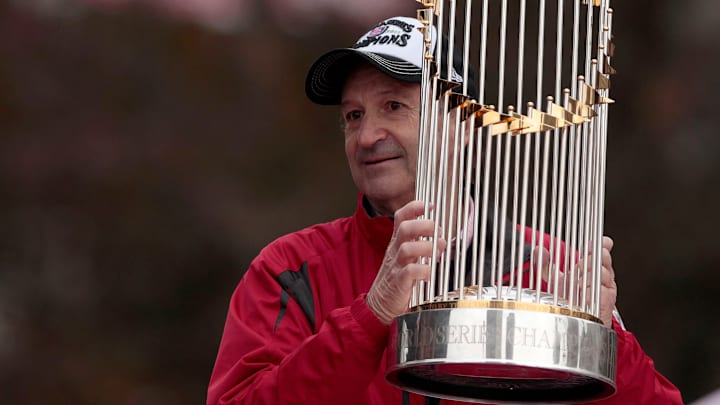After the news that the St. Louis Cardinals ace Sonny Gray suffered a mild hamstring strain in his second Spring Training start, fans began to wonder if the Cardinals would consider adding more starting pitching via the free-agent market. After all, Jordan Montgomery and Blake Snell still somehow remain unsigned with only a few weeks before Opening Day. With the two likely needing to take shortened deals like Cody Bellinger and Matt Chapman, the Cardinals could become players in their markets. However, the idea was quickly shot down by President of Baseball Operations John Mozeliak.
Site expert Josh Jacobs and I gave our raw reactions to Gray's injury on the Noot News Podcast and we immediately expressed our frustrations at the organization's unwillingness to spend further.
After entering 2023 with a rotation of Jordan Montgomery, Miles Mikolas, Steven Matz, Jack Flaherty, and Jake Woodford, it's hard to believe the front office would be comfortable rolling with Mikolas, Matz, Lance Lynn, Kyle Gibson, and Zack Thompson to start 2024, but that seems to be the unfortunate reality. Although ownership claimed the team would climb the payroll rankings this season, there hasn't really been much change. If Mozeliak were given more money to work with, I'm confident the other rotation additions would've been bigger than Lance Lynn and Kyle Gibson.
The rhetoric surrounding the team's spending prior to the offseason was that there would be real philosophical changes in the way the Cardinals approach free-agent starters. In years past, the team was extremely hesitant to hand out long-term contracts to starting pitchers fearing injury risk, even in cases where multi-Cy Young winner Max Scherzer was willing to play for the Cardinals on an extremely team-friendly deal. However, with Sonny Gray only signed to a three-year deal and Lynn and Gibson on one-year contracts, the front office largely fell short of fan expectations.
Personally, I wasn't a fan of adding Jordan Montgomery or Blake Snell on long-term deals, and I far preferred candidates such as Yoshinobu Yamamoto and Aaron Nola for such a contract, but now the two Boras clients are willing to sign a short-term deal eliminating most if not all of the risk from signing them long-term. With Montgomery or Snell, the Cardinals could gain much-needed insurance for Sonny Gray and also have a rotation capable of competing with the league's best in the Postseason.
Many have cited the Cardinals' unwillingness to exceed the first CBT threshold as the reason they won't target Montgomery or Snell. However, signing another frontline starter won't necessarily put them over the luxury tax. According to most sources, the Cardinals have roughly 20-25 million more to spend before the tax threshold. Signing Montgomery or Snell alone would certainly put them over the CBT but they have a few movable contracts that could more than free up the money.
Both Tommy Edman and Steven Matz have considerable trade value and moving either of them would free up the salary needed to avoid the CBT. While it's preferable not to trade either player, as the penalty for the first CBT threshold is very minor, the Cardinals can afford to move on from Edman with Brandon Crawford as the backup shortstop and Dylan Carlson, Lars Nootbaar, and Victor Scott II all are able to fill in at center field. Matz, who would probably be the first starter to move to the bullpen with a new addition, is also not necessary for this team to compete, especially with the addition of Montgomery or Snell.
The front office knows that they can creatively avoid the luxury tax, as they've considered trading both Edman and Matz at some point, which means the decision not to add more starting pitching belongs to ownership. For a group that has repeatedly stated that winning in 2024 is a must, passing the opportunity to add another frontline pitcher on a short-term deal is a huge risk. Let's hope the rotation can sustain the season without it.
